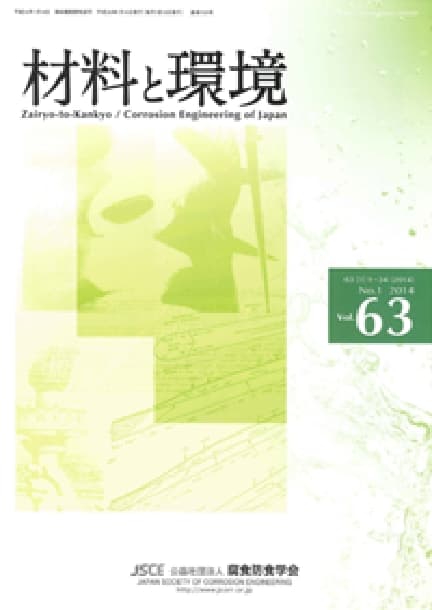Effect of Enbironmental Factors on Intergranular Stress Corrosion Cracking of Carbon Steel in Aqueous Amine Solutions
Shigeru Tsumoto, Katsuhisa Sugimoto
pp. 70-78
Abstract
Effects of solution pH and impurity additives on the intergranular stress corrosion cracking (IGSCC) of carbon steel in monoethanolamine (MEA) solutions have been studied using slow strain rate testing (SSRT) technique under potentiostatic polarization. Experiments were conducted in 20mass% MEA solutions with and without impurity additives in the pH range of 9-11 at 333K. It was found that the IGSCC was observed on the steel in active/passive transition potential regions in 20mass% MEA solutions without carbon dioxide (or carbonate), which has been thought to be a dominant cause for the IGSCC in amine solutions. The susceptibility to the IGSCC increased with decreasing pH value and with increasing concentration of impurity additives such as tiosulfate and hydroxyethyleethylenediamine (HEED). The simultaneous addition of these additives to MEA solutions caused the synergistic acceleration of IGSCC on the steel.










